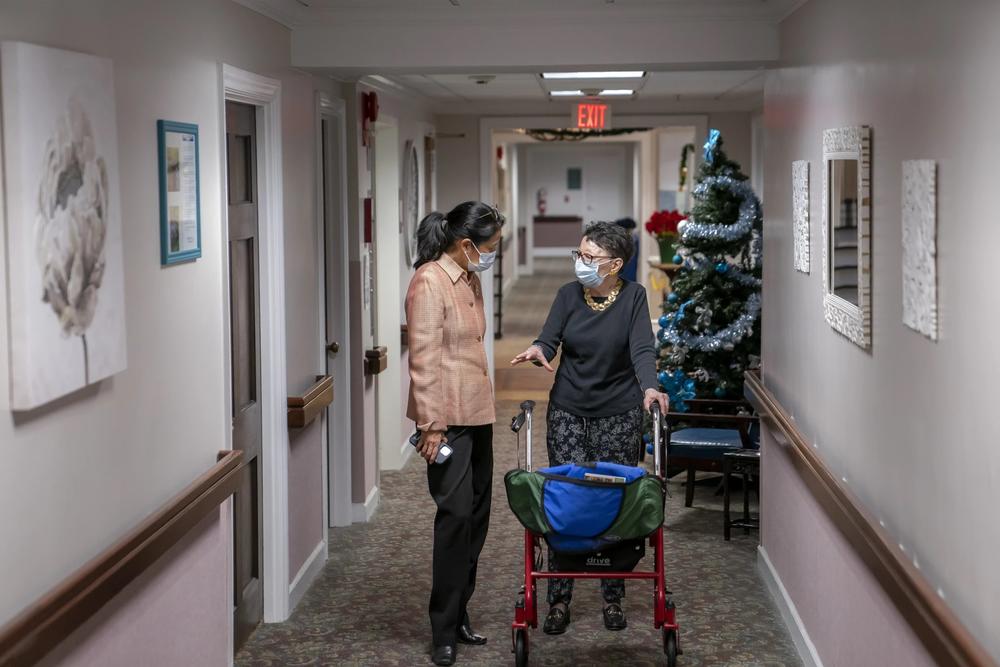
Caption
Tina Sandri, CEO of Forest Hills of DC senior living facility, left, helps resident Courty Andrews back to her room, Dec. 8, 2022, in Washington. The federal government will, for the first time, dictate staffing levels at nursing homes, the Biden administration said Friday, Sept. 1, 2023, responding to systemic problems bared by mass COVID deaths.
Credit: (AP Photo/Nathan Howard)

